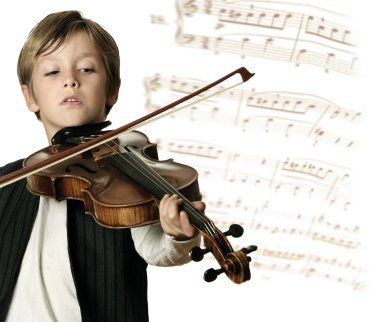by Jennifer Shakeel
 It wasn’t until I became a parent of a child with Attention Deficit Disorder that I ever thought about whether or not my son was gifted or not. I knew that he was incredibly intelligent, and I remember in first grade telling his teacher that it wasn’t that he couldn’t focus, but rather that he was board with what was going on in class.
It wasn’t until I became a parent of a child with Attention Deficit Disorder that I ever thought about whether or not my son was gifted or not. I knew that he was incredibly intelligent, and I remember in first grade telling his teacher that it wasn’t that he couldn’t focus, but rather that he was board with what was going on in class.
Many people, including teachers and medical professionals do not realize that giftedness is associated with feelings of anger and frustration, underachievement, fidgeting, impulsive behaviors, intensity, high energy, stubbornness, nonconforming, individualistic, sloppiness, poor handwriting, disorganization, absentmindedness, forgetfulness, daydreaming, moodiness and a low interest in details. Now if you are sitting there thinking that this sounds like your child when they are not on their pills, read on.
I want to explain to you what “gifted” means and this is why if you child has not gone through a psychological evaluation by a psychologist you may want to consider having it done now. You may be medicating your child when he or she really doesn’t need the medication.
When we talk about gifted we are referring to an IQ of 130 or greater. That is the general consensus, because “gifted” has not been clearly defined anywhere. But there are people who do not score 130 or more but are most definitely gifted. These people include:
- Creative-Gifted: Demonstrated creativity or high score on the Torrence Creativity test (above an IQ of 120 there is no correlation between IQ and creativity scores)
- Demonstration of exceptional skills in a domain, like math or art
- Visual-Spatial thinkers are often gifted but may score below their actual level of intelligence on IQ tests (very high abstract reasoning, visual-spatial skills)
- Sometimes "gifted" is defined as the smartest two percent, which correlates to an IQ of 125. (http://borntoexplore.org/gifted.htm)
This is important when you think about the person that can not add simple digits but is an incredibly gifted artist.
Don’t get stuck on the IQ rating. An IQ of 130 does not necessarily mean that you are gifted and the person next to you with an IQ of 125 is mental patient. If your child comes back with a score or 120 they may be seen as “superior” or “bright” instead of being called gifted, but they are just as likely to be bored by what is going on in the classroom as the child with an IQ of 130. This can lead to the behaviors listed above.
You should also pay attention to the way your child thinks. For example, my son is a very hands on person. He is a visual learner or what they call a visual spatial learner. This put him at a high risk for the ADD label. His IQ is above average but the way he thinks is amazing. Visual/spatial learners are incredible with abstract thinking and reasoning as well as excellent at problem solving. But he has a problem with the processing of what he hears to what he sees, making that connection for him is what he struggles with. I can not tell you how many times I have told the story of the fact that it took us a over a month to get “the” through to him. If you asked him to spell “the” out loud, he could do it. But then if you asked him to point out the word “the” in a vocabulary list he couldn’t do it. Putting the auditory “T… H… E” in the right order to see the word “the”. People like my son are called “right brain” people. He struggles with spelling and phonics and he doesn’t like repeating the same things over and over in school.
Instead of medicating them, it recommended that you home school them or put them in an accelerated program. Check with the “The Gifted Development Center” (www.gifteddevelopment.com/VSL_List.htm), they have done some really amazing work and research on visual-spatial learners.
The notion that gifted children are model students needs to be corrected, now while this is true of some gifted people, it is not the case with all gifted people. Brighter people actually have been shown to be more “overexcited” then the average joe. I want you to consider a few statistics right now. Half of all the children with an IQ of 130 or above get below average grades in school and in one study of high school drop outs, 13% of them were gifted. Now the fun one, 25% of all the children that have a diagnosis of ADD/ADHD tested high enough on the creativity tests that they were offered scholarships by the states that they live in.
It is important that if you child is gifted he or she is in an environment that is appropriate for them to learn and excel. That is why I urge you to have your child tested. I am a firm believer that any person who thinks they may have ADD or ADHD be tested by a professional, not your family doctor who has you fill out a form and then has the teacher fill out the form. Don’t just listen to the teacher either, request that your child be tested. If you request it, state law mandates that the school has to do the testing. If you don’t want to go through the school go to a private psychologist that will do a full evaluation of your child.
You went to the doctor to get the medication because you thought it would help them. And it does, they do better in school and have less behavior problems, but what if it really is because they need more then what school has to offer them.
Biography
Jennifer Shakeel is a writer and former nurse with over 12 years medical experience. As a mother of two incredible children with one on the way, I am here to share with you what I have learned about parenting and the joys and changes that take place during pregnancy. Together we can laugh and cry and rejoice in the fact that we are moms!
No part of this article may be copied or reproduced in any form without the express permission of More4Kids Inc © 2009 All Rights Reserved










Add Comment